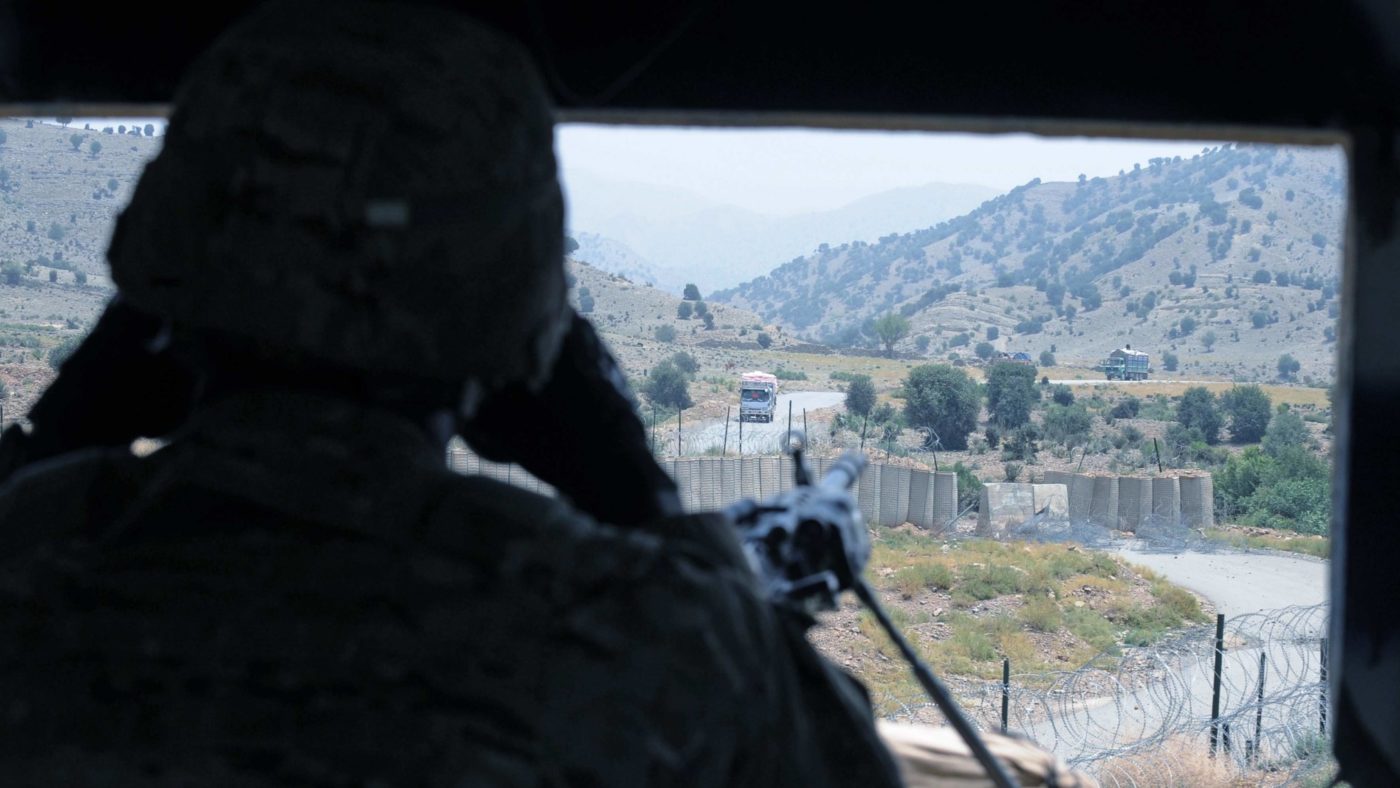How do you solve a problem like Pakistan, an economic basket case whose only world-beating industry is the production and export of jihadist terrorists?
Why, throw money at the problem of course!
For 16 years that has been the approach of US policymakers, who have lavished billions of dollars on the country in the hope it would change its ways.
It has not worked. Pakistan has pointedly not decommissioned its jihad factory. Groups with intimate ties to the country’s security establishment have repeatedly risked military confrontation between the Subcontinent’s two nuclear powers, as in 2008 when terrorists from Pakistan went on a four day rampage around Mumbai. The coddling of the Taliban, whose leadership are allowed to live untroubled in Pakistan, has wrecked the international effort to stabilise Afghanistan.
Most gallingly, Western largesse may have just made the problem worse, by incentivising Pakistan to keep creating jihadis they are then paid to deal with.
Now, finally, things are changing. On Thursday the US announced that it would withhold over $1bn of aid earmarked for the Pakistan army until the country takes “decisive action” against the Taliban and their allies, the Haqqani Network. This followed President Trump’s New Year’s day Twitter outburst saying the US had handed over $33bn over 15 years for which Pakistan “have given us nothing but lies & deceit, thinking of our leaders as fools”.
The US could inflict further financial pain if it chooses to start cutting back on its non-military aid budget. A nuclear option would be to veto future International Monetary Fund bailouts. Given the deterioration of the public finances, Islamabad will likely soon need yet another IMF loan. Pakistan has bet its future on a multi-billion infrastructure binge that is part of China’s Belt and Road strategy. Absent IMF help it will struggle to pay back its Chinese creditors.
Military pressure could also be brought to bear – most obviously with a re-invigoration of the drone campaign in the western tribal belt, perhaps taking even less heed of Pakistani objections than ever before.
The US’s new hard-line approach will horrify Britain’s Foreign Office. For decades the UK has considered Pakistan too big to fail. The security services put particular value on strong ties with a country linked to almost every terrorist plot planned or carried out in the UK since 2001.
It’s a view shared by most US analysts. They concede that no matter how appallingly Pakistan behaves, the US must remain on passingly good terms with a volatile country of 200m Muslims that possesses one of the world’s largest arsenals of nuclear weapons.
A more practical objection is the US-led coalition’s reliance on Pakistan’s territory to shift all the kit necessary for fighting a counterinsurgency in landlocked Afghanistan. In 2011 Pakistan slammed shut the “ground lines of communication” for eight months to protest against the killing by a US warplane of 28 of its soldiers during a border skirmish. The only other routes in are via Central Asia or Iran. The former is convoluted, expensive and subject to Russian veto. The latter involves working with a regime despised by the Trump administration.
And, it must be admitted, the Trump approach is not much more likely to succeed than the traditional efforts to buy off Pakistan. The country’s security establishment is deeply invested in a jihad policy that it has used for decades to protect its two flanks.
To its west, it hopes Islamist insurgency will either one day deliver a Pakistan-friendly government in Afghanistan, or at least create sufficient chaos that its arch-enemy India will not be able to secure a position of pre-eminence in Kabul. A weak Afghanistan would also not be in a position to pursue its 70-year dream of claiming swathes of Pakistani territory Afghans regard as stolen property.
On Pakistan’s eastern border, Islamist proxies are regarded as an essential and cost-effective tool for standing up to India, a much bigger and now far richer neighbour that has bested Pakistan in all four of the major conflicts it has fought since 1947.
But not everyone in Pakistan buys into a jihad policy that creates at least as many problems as it solves. Wise voices point out that staunch support for the Taliban’s first insurgency in the 1990s only delivered Afghanistan into Pakistan’s hands for a few brief years. It also radicalised swathes of Pakistani society and helped spawn domestic terror groups. More generally, being seen to be in bed with Islamist terrorists is not a good look. Even staunch ally China does not care for Pakistan’s jihad habit.
These are the arguments made by one of the country’s most popular politician, Nawaz Sharif, a man who was prime minister until he was disqualified on a legal technicality in July. Rather than joining in the chorus of furious anger that most Pakistani politicians have indulged in since Trump’s recent Tweet, Sharif has called for Pakistan “to put our house in order”.
The country must “reflect on why the world holds negative opinions about us”, he said on January 3.
Sharif is committed to wresting control of his country from the generals who have spearheaded the reckless jihad policy. He knows that the vast majority of Pakistanis are not interested in securing over-lordship in Afghanistan or perpetual war with India. They just want their country to become the non-dysfunctional, prosperous place it deserves to be.
All the more reason why the US and its allies should stop footing the army’s bills.


